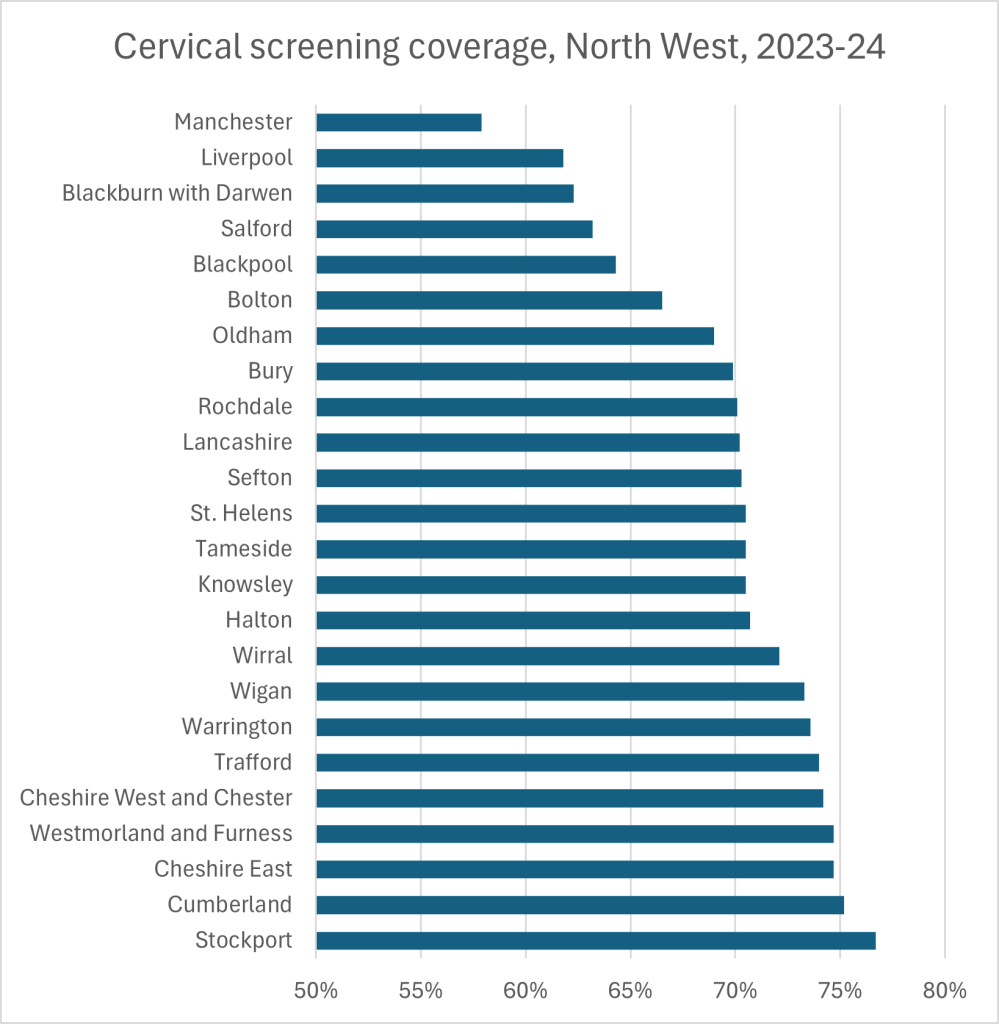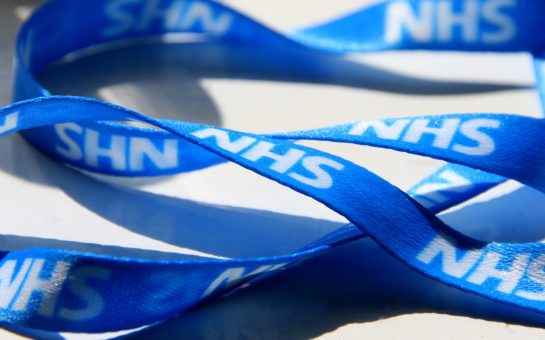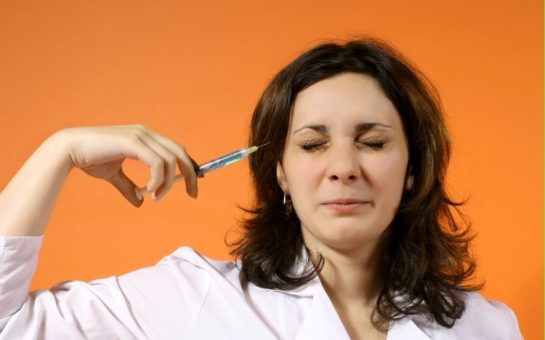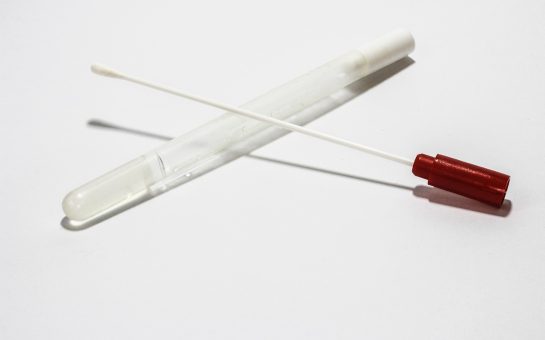Manchester cervical screening rates continued the downward trend of the last four years, falling to 57.9% last year – the lowest in the North West (69.2%).
Every day almost two women die of cervical cancer in England. Cervical screenings – formerly known as smear tests – check the health of the cervix and help to prevent cancer.

NHS data showed screening rates in Manchester have fallen every year from 2020 (73.3%), to 2024 (57.9%).
Louise Ansari, chief executive of patient champion Healthwatch England, said: “We know from stories women have shared with us that fear of pain, embarrassment, past trauma, or misconceptions about HPV can stop them booking a screening appointment.”
Healthwatch recently published research showing that three-quarters of women hesitant about cervical screening would use an NHS-provided home testing kit as it would allow them to avoid discomfort and invasions into privacy.
Ansari said: “We want everyone eligible for cervical screening to know that options are open to them to make this process more comfortable.”
Offering a more personalised experience to cervical screening will help the NHS eliminate cervical cancer by 2040. We’ve put together a list of actions for healthcare leaders, read our report to find out what they are.#CervicalScreeningMyWay https://t.co/sigTWPEYsP pic.twitter.com/gij1EAF2EN
— Healthwatch England (@HealthwatchE) September 16, 2024
The charity has called on the NHS to adopt self-testing, sensitive handling of appointments by screening professionals, drop-in clinics, and increased awareness to boost uptake among all women.
Nearby Salford also recorded low levels of cervical screening (63.2%). But England’s cervical screening coverage did increase by one percentage point in the last year from 68.7% to 68.8%.
Sue Mann, NHS England’s National Clinical Director for Women’s Health, said: “We have set ourselves an ambitious target of eliminating cervical cancer by 2040 – a commitment shared by only a few countries worldwide.
“It’s essential that everyone who is invited for screening comes forward when invited.”
Screenings are offered by the NHS to women and people with a cervix aged 25-64. During the appointment, a small sample of cells are taken from the cervix which are checked for certain types of human papillomavirus (HPV).
Individuals that have a cervix and have had any kind of sexual contact could get cervical cancer, even if they have had the HPV vaccine.
Heather, 26, from Manchester said: “I got the letter when I was 25. My friend’s sister passed away at my age from cervical cancer, so I knew I needed to go.
“I was nervous, it’s not the nicest thing in the world. I was uncomfortable for about ten seconds and then it was over.
“If you’re worried about shaving or waxing, the nurses don’t care. It’s just really sad to see people not making use of something that could save their life.”
Attend a cervical screening exam with Lauren.
— NHS England (@NHSEngland) March 4, 2024
Cervical screening is not a test for cancer, but it helps prevent cervical cancer by checking for a virus called high-risk Human Papillomavirus (HPV). Protect yourself — attend your screening when invited. #HPVAwarenessDay
🎥 @cr_uk pic.twitter.com/hEK0vmIBWw
For more information on cervical screening, visit the NHS website.




